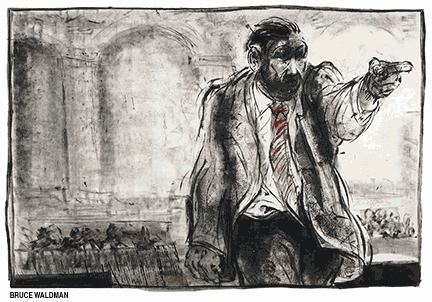DAYTRADING
To Succeed, You Must Do This
Trader, Know Thyself
Want to become a successful trader? Then it’s important to understand how your mind works.

In trading, when something goes wrong and you lose money, nine times out of 10 it’s nobody’s fault but your own. Most of the time the breakdown occurs in how the trade is managed, since many trades do go into and out of the money during the course of their respective durations. Unless you just hit a bad trade that drops like a rock, there is at least (typically) some opportunity to take a profit along the way. In these cases, trade management is one of the most important factors in realizing a gain. Moreover, how you manage your emotions while managing any specific trade often plays a key role in determining the final outcome of a trade as well.
Many traders, especially those new to Wall Street, focus heavily on learning the market. In my view, however, becoming a successful daytrader has more to do with learning about yourself and less to do with learning about the market. Over the years I have been trading, I have seen many individuals try their hand at becoming traders. Some have been successful, while others have not. Some have given up and decided that they are simply not cut out to be traders, while others blow out, taking on too much risk, unable (or unwilling) to correct problems that keep them from becoming profitable over the long term. As most seasoned daytraders will tell you, learning to become a consistent, profitable trader is generally a long, expensive, and difficult road.
Handling your emotions
With this article, I would like to address an issue often overlooked by novice traders: learning to trade pivots largely around handling your emotions. In numerous instances, chances are good that any trade you make has the potential to become a profitable trade, depending on how you manage it. In many cases, the difference between a trade that ends successfully and one that does not boils down to whether you make the right decision at the right time. It’s important to understand that these decisions can be influenced by your emotions. This is why I often tell people that learning to daytrade is more about learning about yourself than learning about the markets.